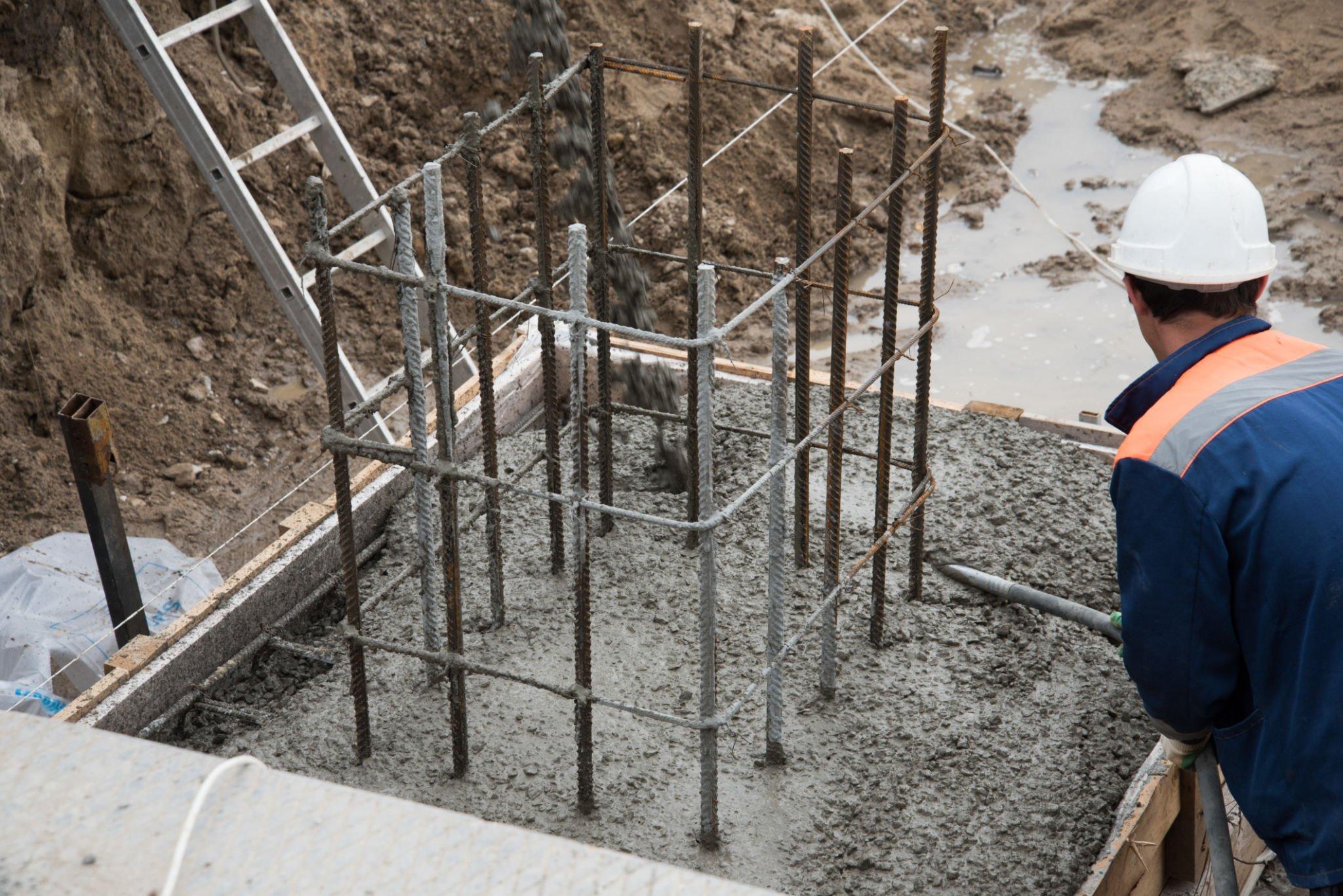What to Expect from a Phoenix Home Inspection

Buying a home is one of the biggest investments most people will ever make. Before signing on the dotted line and committing to a property, it’s essential to thoroughly inspect the home to uncover any issues or needed repairs. This is where a professional home inspection comes in.
If you’re in the market for a house in the Phoenix area, a Phoenix home inspection is a crucial part of the home buying process. Here’s what you need to know about home inspections in Phoenix and what to expect.
Overview of a Home Inspection
A home inspection is a detailed examination of the physical condition of a home. An inspector will assess the structural soundness, function, and overall safety of the home’s major systems and components like:
- Roof
- Attic
- Exterior
- Basement
- Heating and cooling systems
- Plumbing
- Electrical
- Foundations
- Kitchen appliances
- Bathrooms
- Interior rooms
- Garage
- Insulation and ventilation
- Doors and windows
The inspection provides a comprehensive report of the home’s condition. It will identify any issues that need repair or pose safety risks.
While inspectors evaluate the functionality of appliances, they don’t test them to manufacturer’s standards. You may want to hire specialists to further inspect unique systems like swimming pools, wells, and septic systems.
What to Expect During a Phoenix Home Inspection
A standard Phoenix home inspection takes 2-3 hours to complete. The inspector will arrive and start by examining the exterior of the house. They’ll evaluate things like:
- Roof condition
- Siding for cracks or rot
- Exterior paint condition
- Condition of doors, windows, and screens
- Possible foundation issues like cracks or water damage
- Grading and drainage around the home
After the exterior, the inspector moves inside. They’ll evaluate each room, operating all appliances, plumbing and electrical fixtures, heating and cooling systems, and anything else permanently installed. The inspector will also check areas like:
- Attic insulation levels
- Water heaters
- Electrical panel and wiring
- Walls, floors, and ceilings for cracks or stains
- Kitchen appliances
- Bathroom fixtures and ventilation
- Basement or crawlspace for moisture issues
The inspector will also look for safety hazards like loose railings, exposed wires, faulty circuit breakers, and potential fire risks. In the end, you’ll receive a detailed inspection report highlighting any repairs needed and an evaluation of the home’s overall condition.
What to Look for in a Phoenix Home Inspector
It’s important to pick an experienced, qualified professional to inspect the home. Look for an inspector who:
- Has all required state licensing
- Carries professional certifications like from the American Society of Home Inspectors (ASHI) or International Association of Certified Home Inspectors (InterNACHI)
- Has years of experience and positive reviews
- Provides detailed inspection reports with photos of issues found
- Uses state-of-the-art diagnostic tools and testing methods
- Offers tips on repairs, cost estimates, and related advice
Reputable inspectors focus solely on inspections instead of other real estate or construction services. They’ll take the time to explain their findings, walk you through the home again, and answer all your questions thoroughly. Professional affiliations, ongoing training, and a comprehensive inspection approach are also good signs.
What Isn’t Covered in the Inspection?
While home inspections are very thorough, there are a few things typically excluded from the standard inspection:
Pests: A separate termite and pest inspection is recommended to check for infestations, wood rot, and other damage.
Asbestos: Asbestos inspections involve specialized testing and labor protocols.
Lead: Lead-based paint tests are not part of a standard inspection. The inspector may point out areas of potential lead exposure.
Mold: Mold inspection and testing is very specialized and not part of the general inspection. They may point out visible mold issues.
Pools/spas: Specific inspections may be needed to evaluate equipment like pool pumps, hot tubs, and other water features.
Low-voltage systems: Things like security cameras, intercoms, and home theaters typically aren’t covered.
Detached structures: Workshops, sheds, and other separate buildings normally aren’t included.
Septic tanks/wells: Specialized inspections are recommended for septic systems and water wells.
If any issues are found in one of these areas, follow up with the appropriate specialists for further evaluation.
Learn more: How A Home Inspection Protects You
What to Do After the Inspection
The home inspection report provides objective insight into the home’s condition and any repairs needed. Use the results to make an informed decision about moving forward.
If major issues are uncovered, you may want to negotiate with the seller for repairs or re-evaluate buying the home. For minor problems, factor repair costs into the purchase.
Discuss the results with your real estate agent too. They can advise if the inspection findings are normal for a home of that age in the area.
Don’t forget to review the inspection exclusions as well. Hire qualified specialists to further inspect areas like pests, asbestos, lead, mold, and pools if needed.
Finally, keep a copy of the inspection report. It provides a helpful baseline of the home’s condition at the time of purchase. Regular maintenance and periodic inspections will help keep your new home in great shape for years to come.
Home Inspection Checklists
To make the most of your Phoenix home inspection, it helps to know what inspectors will examine. Here are handy checklists of what’s included both inside and outside the home.
Exterior Inspection Checklist
- Roof condition
- Chimneys and flashings
- Siding for cracks or rot
- Exterior paint condition
- Outdoor lighting
- Exterior outlets
- Doors and windows for damage and operation
- Window and door screens
- Entryways, decks, porches condition
- Eaves and overhangs
- Drain spouts and gutters
- Foundation for cracks or water issues
- Grading and drainage around home
- Vegetation touching house
- Driveways and walkways condition
Interior Inspection Checklist
- Walls, floors, ceilings for cracks and stains
- Doors and windows operation
- Ceilings and walls for stains indicating leaks
- Signs of pests like mice or termites
- Smoke and carbon monoxide detectors
- Interior paint condition
- Steps, stairways, and railings
- Kitchen cabinets and countertops
- Kitchen appliances operation
- Kitchen plumbing and electrical
- Bathrooms plumbing, electrical, ventilation
- Bathroom fixtures operation and condition
- Whirlpool tubs operation
- Garage door operation and safety sensors
- Garage walls and foundation
- Attic insulation levels
- Attic ventilation
- Basement or crawlspace moisture issues
- Plumbing leaks or clogs
- Water pressure and pipe condition
- Electrical panel, wiring, fixtures
- Heating and cooling systems operation
- Fireplace and chimney condition
- Built-in appliances operation
- Laundry connections and appliances
- Humidifier/dehumidifier operation
- Security system operation
Benefits of a Professional Home Inspection
While you can examine a home yourself, a professional Phoenix home inspection offers many advantages:
- Objective evaluation: They provide an unbiased, expert assessment of the property.
- Access to areas: Inspectors can access and evaluate areas like attics and crawl spaces.
- Technical expertise: They understand home systems and use specialized tools and methods.
- Accuracy: Professionals are more thorough and skilled at identifying issues.
- Peace of mind: A home inspection gives insight into the home’s condition, so you can make an informed buying decision.
- Negotiation power: The inspection findings can provide objective documentation to negotiate repairs or credits.
- Industry knowledge: Experienced inspectors know what to expect in a home of a certain age in the local area.
- Ongoing resource: Your chosen inspector can answer questions before and after the inspection.
While an inspection costs money up front, it’s a worthwhile investment that can potentially save you from expensive surprises down the road.
What a Phoenix Home Inspection Costs
Professional Phoenix home inspection costs range from $300 to $500 on average for a typical single-family home. The exact price depends on factors like:
- Home size – Larger homes take longer and often cost more
- Age of home – Older homes may require more scrutiny
- Scope of inspection – Add-ons like pools or septic systems add cost
- Inspector experience – Prices can vary between inspectors
On the low end, you may pay around $250 for a basic inspection of a small, newer home by a less experienced inspector. On the high end, expect to pay $600 or more for an older, larger home requiring extensive testing.
Additional expenses can include:
- Return trip fees if you require the inspector to recheck issues
- Specialized tests like lead, mold, or asbestos
- Separate inspections of detached structures
Overall, don’t choose an inspector based solely on price. The cost difference of a few hundred dollars is well worth it for an expert evaluation. Just be sure to get an estimate upfront so you know what to budget.
Home Inspection FAQs
If you’re getting your first home inspection, it’s normal to have lots of questions about what to expect. Here are answers to some frequently asked questions.
Should I be present for the inspection?
It’s recommended to attend the inspection so you can see the home through the inspector’s eyes. They can walk you through issues and point things out in person. If you can’t attend, ask if they offer live video streaming.
How long does it take?
The average inspection takes 2-3 hours for a typical single-family home. Very large homes with extensive grounds or unique features may take longer.
Why do I need a home inspection if the home looks fine?
Even homes that look flawless can have underlying issues invisible to the naked eye. An inspector has the skills and tools to uncover problems before you buy.
What if the sellers already had an inspection done?
It’s still smart to get an independent inspection yourself. The seller’s inspection likely won’t identify concerns that would lead them to lower their price.
What should I look at during the inspection?
Focus on how the inspector examines areas, how thorough they are, if they explain their process, and if they answer questions clearly.
Can inspectors look everywhere?
Inspectors typically don’t do destructive testing by moving furniture or taking apart equipment. Some areas like chimney flues may be inaccessible.
Do I need other inspections besides the standard one?
It’s smart to have specialists inspect pools, septic tanks, wells, pest infestation, asbestos, mold, and lead paint if applicable.
What happens if problems are found?
Your inspector will highlight any issues in their report. You can then negotiate repairs with the seller, re-evaluate buying the home, or budget for future repairs.
Finding the Right Home Inspector in Phoenix
Choosing the right home inspector is key to getting an accurate, comprehensive evaluation. Here are tips for finding quality Phoenix home inspectors:
- Ask your real estate agent for recommendations. They often have inspectors they trust and regularly work with.
- Look for licensing like from the Arizona Board of Technical Registration. Licenses ensure proper training and adherence to standards.
- Check for certifications from respected organizations such as ASHI and InterNACHI. Certifications indicate ongoing education and commitment to the profession.
- Read online reviews and talk to past clients. This offers insight into the inspector’s thoroughness, professionalism, communication skills, and inspection quality.
- Ask about their experience. Look for inspectors with at least 5 years of experience and preferably focused solely on inspections, not other real estate work.
- Inquire about technology used. Advanced tools like infrared cameras, moisture meters, carbon monoxide detectors, and digital documentation provide more in-depth analysis.
- Compare what’s included. Look for inspectors who go above the minimum required items and provide the most comprehensive inspection.
Take the time to research inspectors thoroughly and find one who offers the service and expertise you need. They provide a valuable service that helps ensure your new home purchase meets your expectations.
Conclusion
If you’re shopping for a home in the Phoenix area, make a professional home inspection a priority. An inspector’s trained eye will thoroughly evaluate the home’s condition, systems, and safety to uncover any issues lurking below the surface.
While inspectors don’t test absolutely everything, their inspection combined with targeted specialists for pools, septic, pests and other exclusions provides a detailed picture of the home’s condition. Use the inspection findings wisely to inform negotiations and make the best purchasing decision.
Finding a reputable Phoenix home inspector you trust is key to getting the peace of mind that your new home is structurally sound, safe, and a good investment. With an inspector’s expert insights guiding you, you’re more likely to end up with your dream home.



